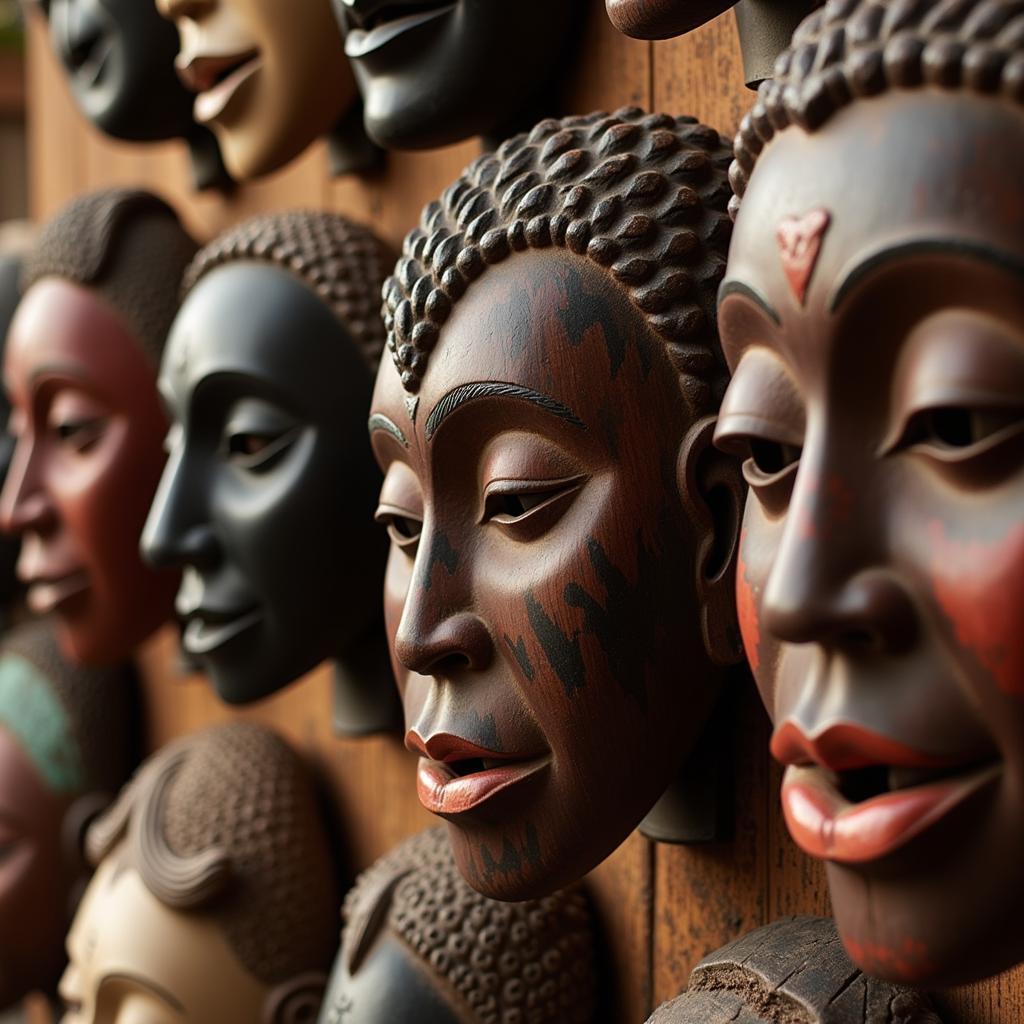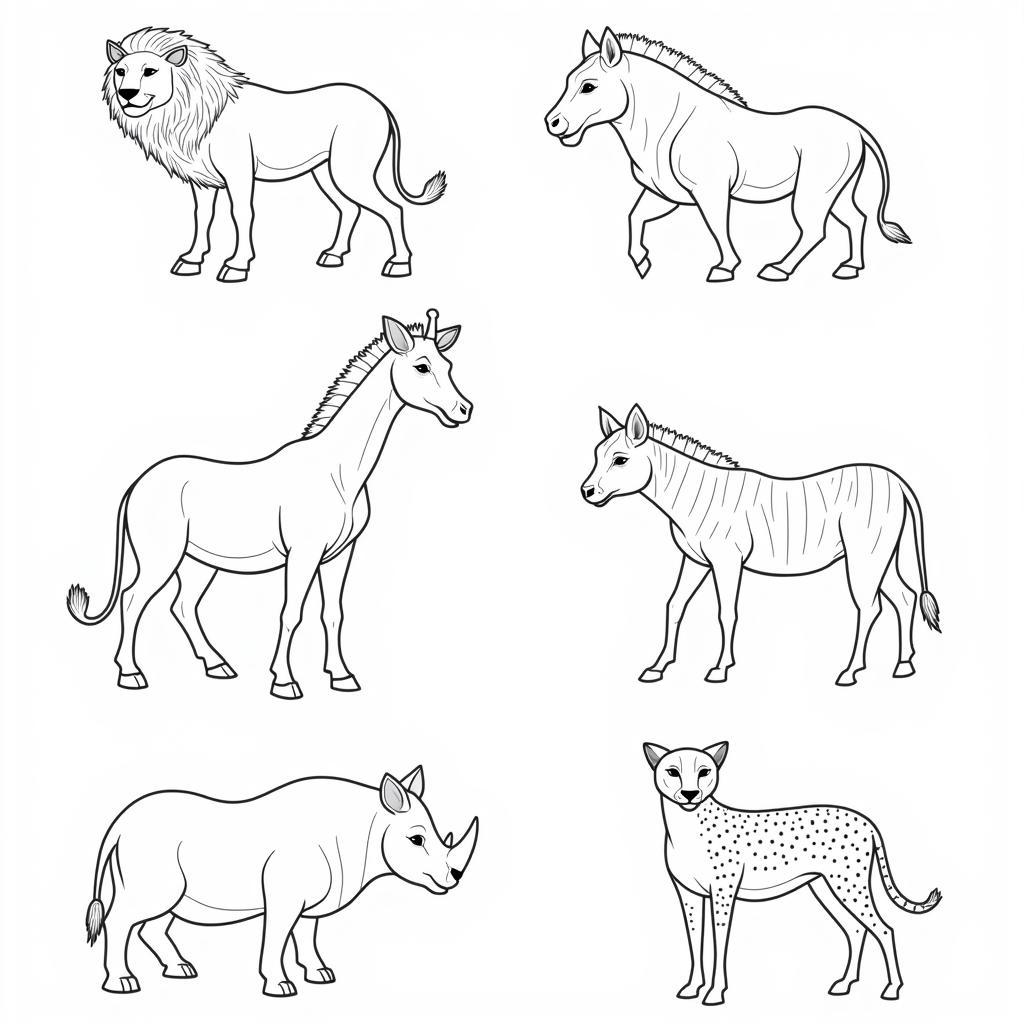The Plight of the African Black Rhino: A Conservation Crisis
The African Black Rhino, once a majestic sight across the African savanna, is now critically endangered, teetering on the brink of extinction. This magnificent creature, with its prehistoric appearance and gentle nature, has been decimated by human actions, leaving its future uncertain.
A Species Under Siege: Understanding the Threats
The decline of the African black rhino is a tragic tale of human greed and indifference. The primary driver of their decline has been poaching, fueled by the insatiable demand for rhino horn in some cultures. Despite being made of keratin, the same material as human fingernails, rhino horn is falsely believed to possess medicinal properties and is seen as a status symbol, leading to its exorbitant price on the black market.
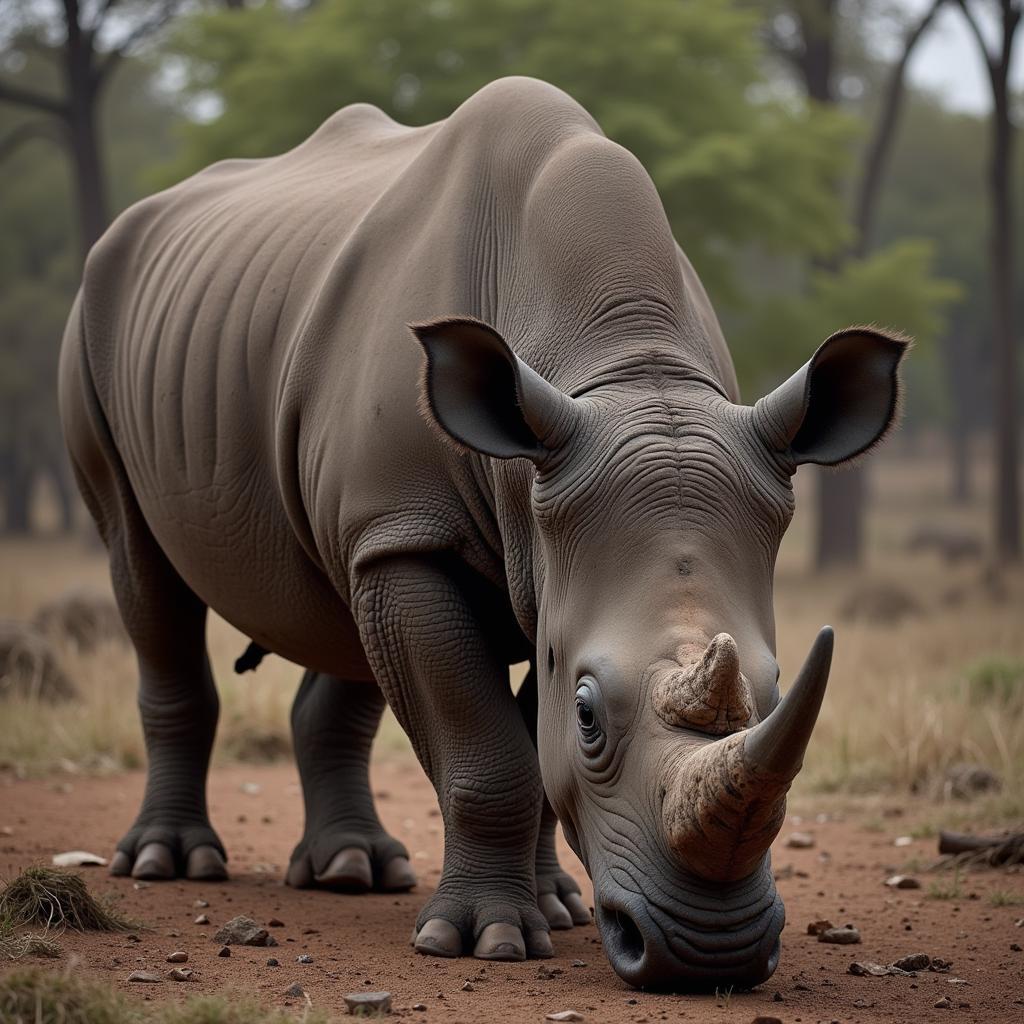 African Black Rhino Poaching
African Black Rhino Poaching
Beyond poaching, habitat loss and fragmentation due to human encroachment further threaten the survival of the African black rhino. As human populations grow and expand into their natural habitats, rhinos are increasingly confined to smaller, isolated areas, leading to competition for resources and inbreeding. This fragmentation also makes them more vulnerable to poaching, as their movements are restricted and easier to track.
Guardians of the Rhino: Conservation Efforts and Hope for the Future
The fight to save the African black rhino is a race against time, a multifaceted effort involving governments, conservation organizations, and local communities. Anti-poaching patrols, often equipped with sophisticated technology and highly trained rangers, work tirelessly to protect rhinos from poachers.
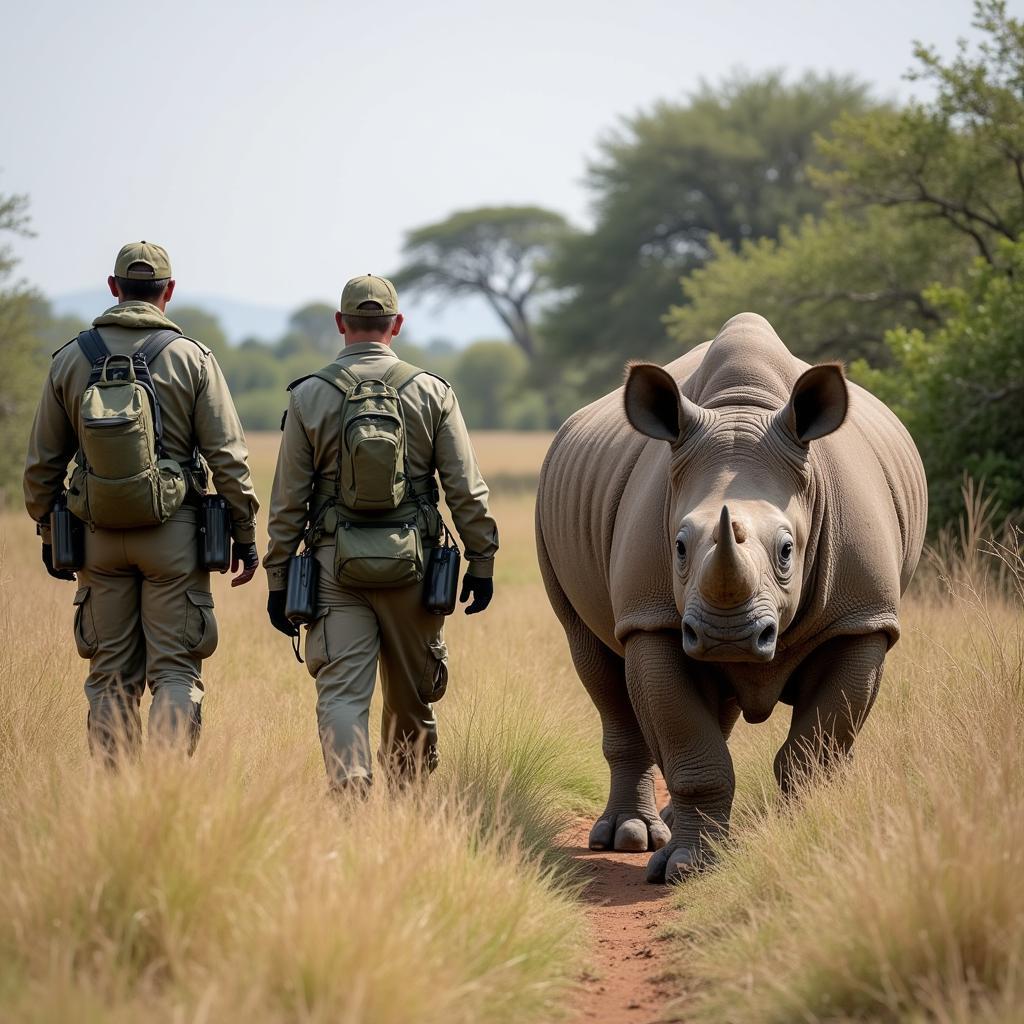 African Black Rhino Conservation Patrol
African Black Rhino Conservation Patrol
Furthermore, conservationists are exploring innovative solutions such as de-horning, a controversial but sometimes necessary measure to deter poaching by removing the very thing poachers seek. While this does not eliminate the risk entirely, it can make rhinos less desirable targets.
Community-based conservation initiatives are crucial, empowering local communities to become stewards of their natural heritage. By providing education, alternative livelihoods, and involving local people in conservation efforts, these programs foster a sense of ownership and responsibility for rhino protection.
A Future Uncertain: Will the African Black Rhino Survive?
The fate of the African black rhino hangs in the balance, a stark reminder of the fragility of our planet’s biodiversity. While the challenges are immense, the ongoing conservation efforts offer a glimmer of hope. By addressing the root causes of poaching, protecting and expanding their remaining habitat, and fostering community engagement, we can strive to ensure the survival of this iconic species for generations to come. The extinction of the African black rhino would be a tragic loss, not just for Africa, but for the entire world.
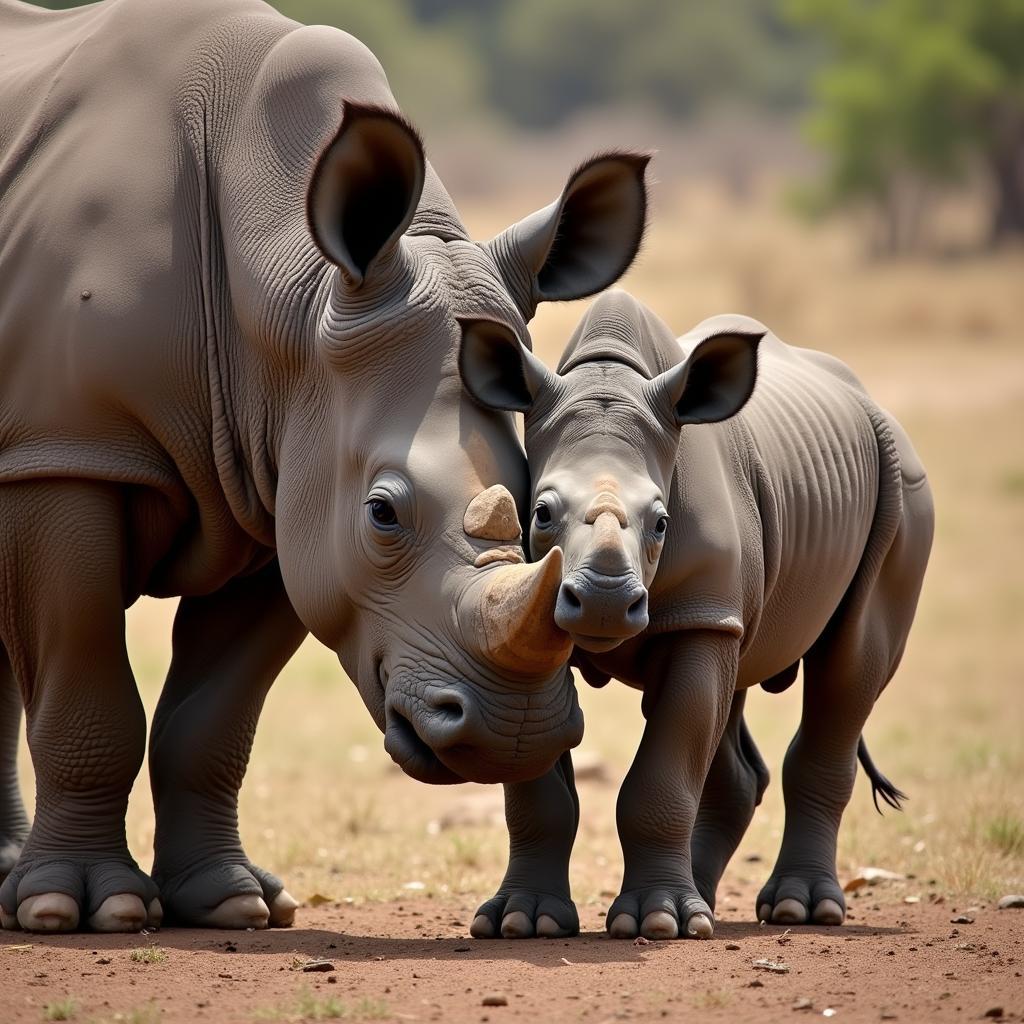 African Black Rhino Calf and Mother
African Black Rhino Calf and Mother
FAQ
1. How many African black rhinos are left in the wild?
It is estimated that fewer than 6,000 African black rhinos remain in the wild, making them critically endangered.
2. What makes rhino horn so valuable?
Despite being made of keratin, rhino horn is falsely believed to have medicinal properties and is a status symbol in some cultures, driving up its price on the black market.
3. How can I help protect African black rhinos?
You can support reputable conservation organizations, educate yourself and others about the plight of rhinos, and advocate for stronger anti-poaching measures.
4. Is de-horning an effective conservation strategy?
De-horning is a controversial measure but can deter poaching by removing the horn, though it does not eliminate the risk entirely.
5. Are there any successful examples of African black rhino conservation?
Yes, there have been successes in certain areas with increased protection and community-based conservation programs leading to population increases.
Discover More
To delve deeper into the fascinating world of African wildlife, explore these related articles:
- African Black Rhino Declared Extinct
- African Animals Pictures with Names
- African Countries Animals
- African Buffalo DRC
For any inquiries or assistance, please don’t hesitate to reach out to our dedicated team:
Phone: +255768904061
Email: kaka.mag@gmail.com
Address: Mbarali DC Mawindi, Kangaga, Tanzania.
We are available 24/7 to address your needs.
